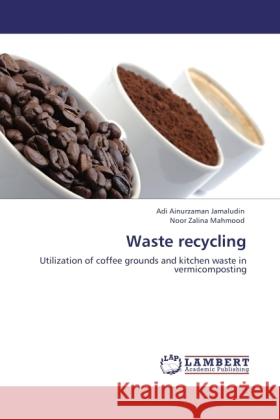Waste recycling » książka
Waste recycling
ISBN-13: 9783845474427 / Angielski / Miękka / 92 str.
A study was conducted for 21 days of pre-composting and 49 days of vermicomposting under laboratory condition by using earthworm (Lumbricus rubellus). Three different combination of treatments were prepared with eight replicates for each treatment, namely cow dung : kitchen waste in 30:70 ratio (T1), cow dung : coffee grounds in 30:70 ratio (T2), and cow dung : kitchen waste : coffee grounds in 30:35:35 ratio (T3) were used for this study. By comparing the numbers and weights of earthworms in each treatment, only T2 indicated significant difference (p 0.05) which it can be concluded that coffee grounds influenced the development of earthworms population. Nutrient elements in the vermicompost from each treatment were measured and relatively showed high percentage in C, N, P, K, Ca, and Na. Contrast for Mg and other micronutrient elements, the result showed small percentage in Zn, Cu, Fe, Mn, B, and crude fat. The data reveals that coffee grounds can be decomposed through vermicomposting by using Lumbricus rubellus into value-added material. With the correct ratio and suitable condition of kitchen waste, coffee grounds can also be used as stabilizer in vermicomposting.











